It’s August. Mid-August, if you’re rounding. If you round up, it’s September! It’s the beginning of school!! I know there are few of you starting school already. Some of you are waiting until it’s really September. But no matter how you look at it, the beginning of school is in sight.
In light of my rounding trick, turning summer into fall, we’re going to play a rounding game this week. This week’s game is Rounding War found in the Math Card Games book, game N46. Although many people seem to think teaching rounding is challenging, it’s really not!
If someone says “Dinner will be ready in about 10 minutes,” does that mean dinner will be ready in exactly 10 minutes? Or could it be ready in 8 or 9 minutes, or maybe 11 or 12 minutes? When numbers are not exact, we estimate or round.
Let’s use the Place Value Cards and the AL Abacus to explain rounding. Lay the tens cards next to the abacus, like I have here.
Enter 32 on the abacus. Ask the child which place-value card is closest to 32? That’d be 30. Change the 32 to 30 on the abacus. You have just rounded 32 to the nearest 10. Is that easy or is that easy?
Now enter 59 on the abacus. Which place-value card is closest to 59? That’d be 60. Change the abacus to show the nearest 10. This time you rounded 59 to the nearest 10 by going up. See how simple this is?
So how would you round 25? It’s in the middle and could go either way, however most of the time people round it up, which would be 30.
Now that we have a good handle on the rounding concept, let’s practice it with a game, which is a whole lot more fun that a worksheet. To play Rounding War, you’ll need about 40 or 50 multiplication cards. Although you could have a couple cards less than 10, cards over 10 are better.
Divide the cards evenly between the two players. Like a traditional war game, each player turns over their top card. Each player rounds their card to the nearest ten. The player with the higher rounded amount takes both cards.
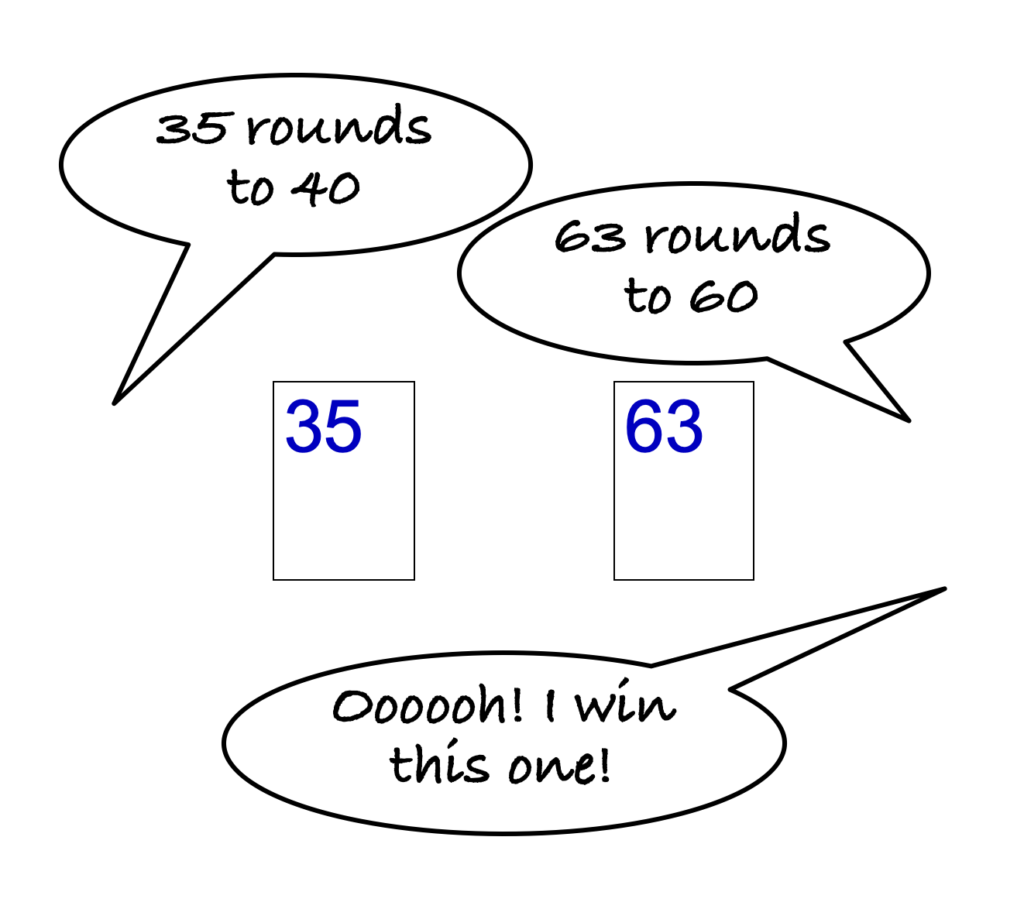 When an adult is playing with a child, have the child name both rounded values. If two children are playing, each must state their amounts. This prevents one child from being dominate and the other, who likely needs some practice, from riding on the information of the first child.
When an adult is playing with a child, have the child name both rounded values. If two children are playing, each must state their amounts. This prevents one child from being dominate and the other, who likely needs some practice, from riding on the information of the first child.
If the cards round to the same number, which will happen quite frequently, you have a war! Both players will put two extra cards face down, then play a third card face up. Round the new card. The player with the higher rounded amount takes all eight cards.
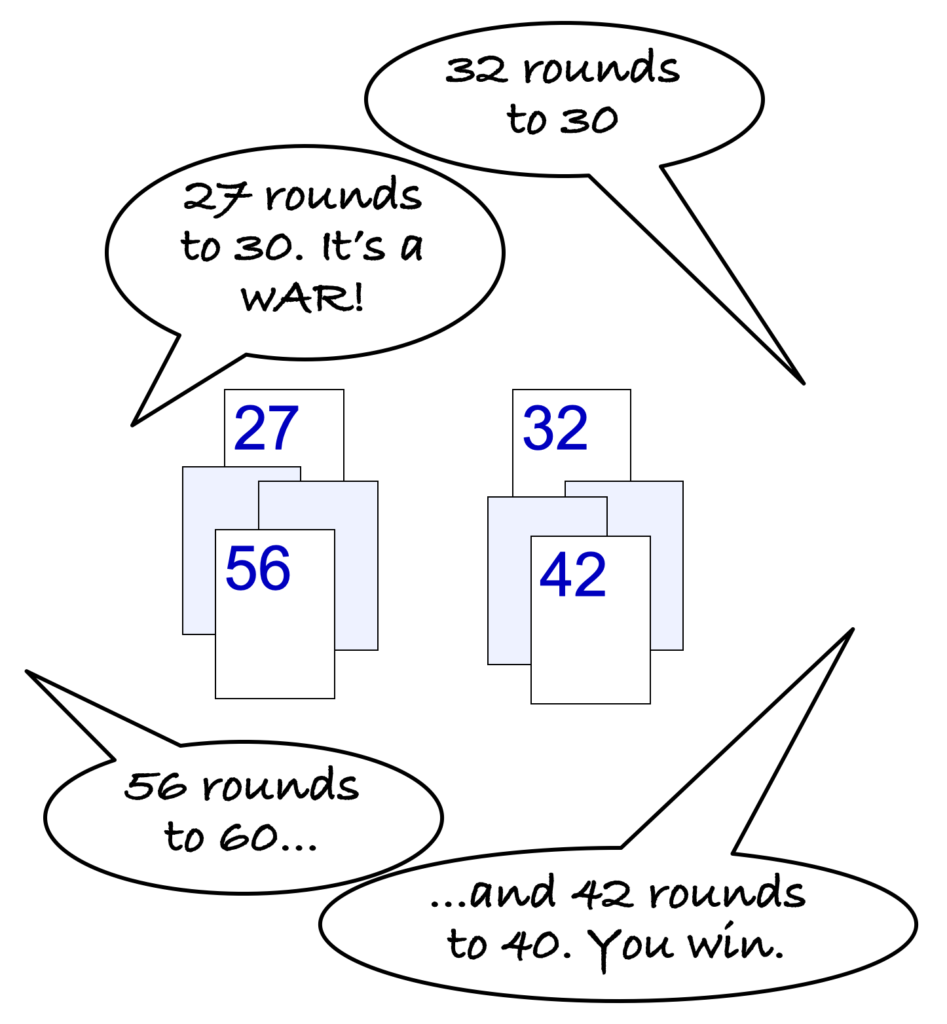
The winner of the game is the one who collects all the cards from their buddy. If that dramatic of a loss is difficult for a child, play for a specific length of time, rather than for all the cards.
Are you wanting to ramp up the game? How about using all the multiplication cards and each player lays down two cards. Add up the cards, then round the sum. Or round both cards, then add those two values and compare to see who gathers all four cards. If you try this, let us know which variation your family enjoys. Or if you’ve come up with your own variation, share with us all!
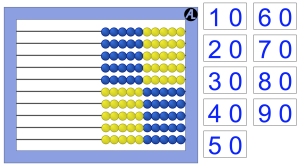
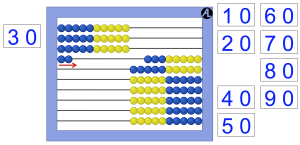
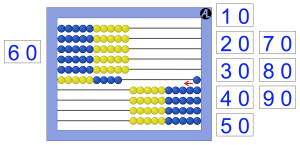

Nice!
We haven’t gotten to rounding yet but this will super fun when we do. 🙂
My youngest (she’s 5) is listening in on the big kid games. She often tries to play as well and I think this one might be one she could “play” with us.